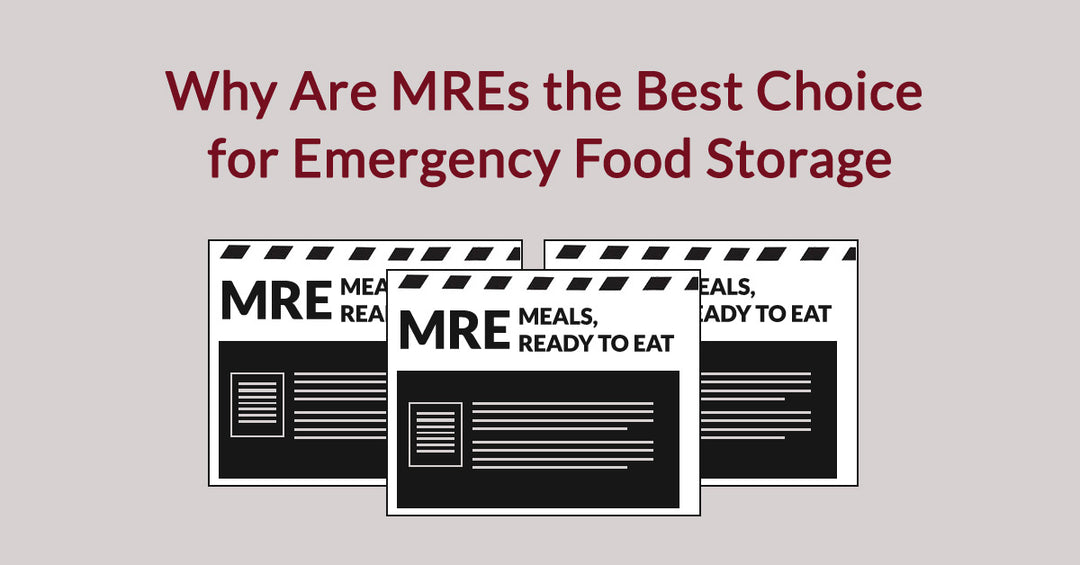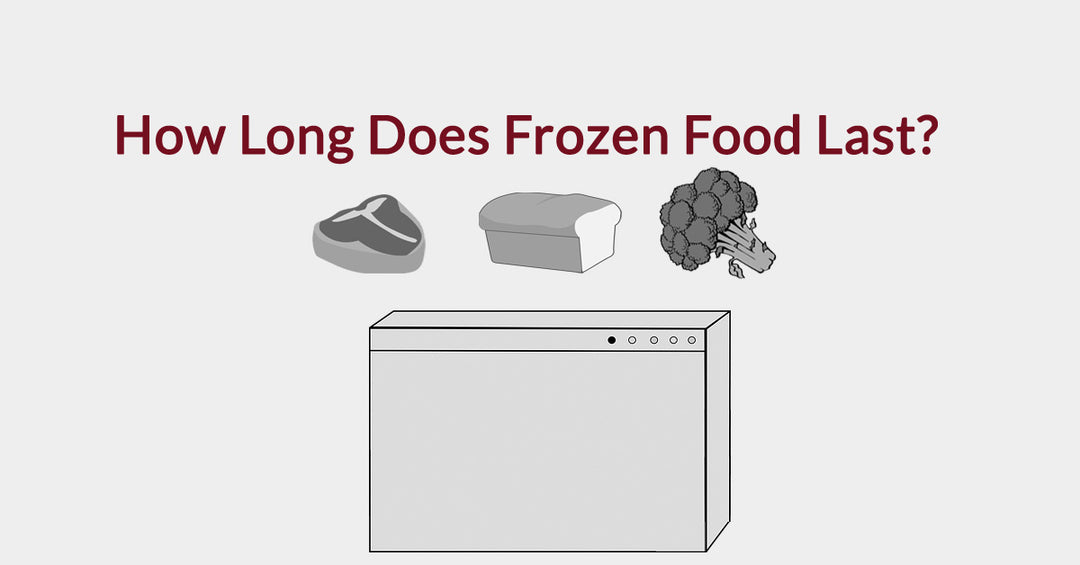How Long Does Frozen Food Last?

People freeze their food for a variety of different reasons. Some people like to do a big meal prep on a regular basis to ensure they always have a fresh cooked meal on hand. Other people take considerable care planning out their family's favorite meals so that there's always a treat waiting at the end of the day. Yet others still might want to keep a well stocked freezer as an emergency food supply.
We all have one question on our minds when we're getting ready to store our food: Just how long will any given item last in the freezer? The short answer is that frozen food will last indefinitely in its most basic form. However, everything we value in our frozen food tends to degrade over time. Food isn't just about filling our belly. We also want to maintain the taste, texture, and nutritional profile of the meal we're storing in the freezer. And all of these factors change on a case by case basis depending on the nature of the individual item. So to answer how long frozen food lasts, we'll need to take a look at some specific examples. But before we do so, it's also important to consider why food degrades in the freezer.

The Unfortunate Combination of Ice and Air
Food degrades at room temperature in large part due to the effects of bacterial growth. Bacteria love a fresh meal just as much as we do. And if food sits around very long, bacterial colonies will start to devour it. Over time these bacteria will excrete waste onto the food, breed more bacteria on it, and generally make it an unappealing sight for humans.
However, bacteria have one major weakness. They can't move around when frozen solid. Make no mistake, a lot of that bacteria might still be alive. But the bacteria are essentially stuck in hibernation. As long as the food is frozen, the bacteria can't really do anything to it. But that doesn't mean our meals are fully protected from damage while in the freezer. It simply means that we've removed the most pressing concern. There's still some major issues that we need to be aware of when storing food in the freezer.
The single biggest problem comes from ice and air. Most of us have heard the term freezer burn before. But the average person isn't very familiar with the exact details of the condition. What is freezer burn and why is it so bad for food?

The Problem of Freezer Burn
Freezer burn refers to a phenomenon that occurs when freezing cold air comes into contact with food. The cold air essentially saps moisture from food over time. It's often easy to spot freezer burn by simply looking for ice crystals on food, but many items will also become withered, shriveled, and even discolored as the freezer burn works its magic.
Many foods will also suffer some damage from the initial process of freezing it. This is largely related to moisture content and cellular structure. A freezer isn't just cold, it's cold enough to freeze water. And this includes the water inside food and inside that food's cellular structure. When water freezes, it also expands and can damage whatever was containing it. This is part of why different foods react differently to the freezing process.
All of this illustrates an important point about food stability in the freezer. It's absolutely essential to reduce food's exposure to the cold air. The best way to do this is through freezer wrap or freezer-safe containers. It's fine for a container to have a little air in it, but the important point is to stop any new air from entering into it.
We can do a quick test by just verifying that the container is waterproof. If water can't get into a container from the outside, then air typically won't be able to either. If we keep that practice in mind, then we can generally keep most foods safe and tasty in the freezer for a considerable amount of time. We can generally assume food will stay good, when properly protected, for about three to six months in the freezer. But this rule of thumb can be better understood by looking at specific types of food.
Bread
Bread is one of the most freezer friendly foods in the world. We can generally count on it staying fresh, if properly wrapped or sealed in a freezer safe container, for about three months. This isn't the longest duration in the world. But what makes bread special is how quickly it defrosts. We can generally just defrost bread by leaving it at room temperature for about ten minutes.
Keep in mind that some items that are primarily made with bread will last even longer in the freezer. Muffins are particularly impressive. A muffin can stay fresh in our freezer for about six months to a full year. People might notice that there's seldom much need to cycle through cookie dough either. That's because it has an impressive freezer life of about three to six months. If we actually make cookies with it the shelf life extends to about six to eight months.
Meat (cooked)
The main trick with cooked meat is to ensure it's properly cooled off before freezing. If steam is still coming off meat when it's placed in the freezer then it will promote both freezer burn and bacterial growth. As such, it's a good idea to simply wait for the meat to cool to room temperature before wrapping it up for the freezer.
If meat is allowed to properly cool then most meats will stay fresh for about one to two months, though ground meats can last considerably longer. Most ground items will stay fresh for about three to four months. Just watch out for ham. It has the lowest freezer life of any meat - at just one month.

Meat (raw)
Most raw meat can last for an impressive amount of time in the freezer. Chicken and turkey will typically last for a full year. Steaks and roasts can nearly match that, with a shelf life of about half to a full year in the freezer. Just watch out for bacon. While ham is good for about half a year in the freezer, bacon will only last about a month.

Seafood
We'll often notice a slight glaze of ice on seafood from the store. This glazing process comes from dipping fish in cold water, freezing it solid, and then repeating the process a few times until there's about 0.25 inches of ice. If we glaze the fish and then store it as we normally would in the freezer then we can usually extend its shelf life.
If we're smoking fish then it typically won't last very long in the freezer — just two months. Lean fish will last about six months, while fatty fish typically stay fresh for about half that time. Shrimp and scallops will last for about three months to half a year. Crab is particularly impressive with a shelf life of ten months, but lobster comes out as the king of the fishy freezer with a shelf life of one full year when properly prepared.

Fruits and Vegetables
Fruits and vegetables typically last for a very long time in the freezer. However, we can make the most of the process by chopping vegetables before freezing them. It's also a good idea to blanch vegetables before freezing them to stop their internal enzymes from damaging them in storage.
If we take those precautions then berries, apples, bananas cherries, peaches, plums, and most vegetables will last between eight months and a year in the freezer, but citrus fruits, such as oranges, typically only last about three months in the freezer.

Putting It All Together To Ensure We’re Always Prepared
Freezing food is a fantastic way to ensure we have fresh food when we need it. However, it's important to keep in mind that emergency situations often knock out the electrical system powering our freezers. That's why it's also a good idea to have emergency food such as an MRE and dry staple items such as beans or rice. It's easy to stay healthy and well fed in an emergency situation when we combine frozen or de-thawing meals, dry staples and a good MRE together into a full meal plan.




